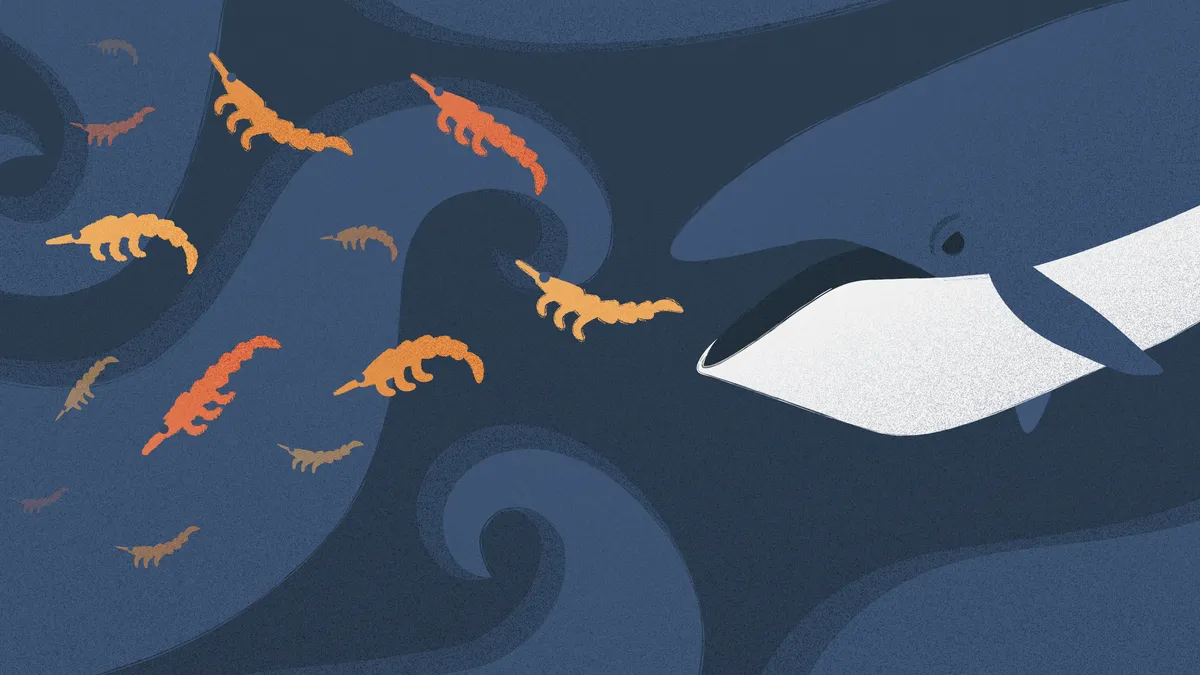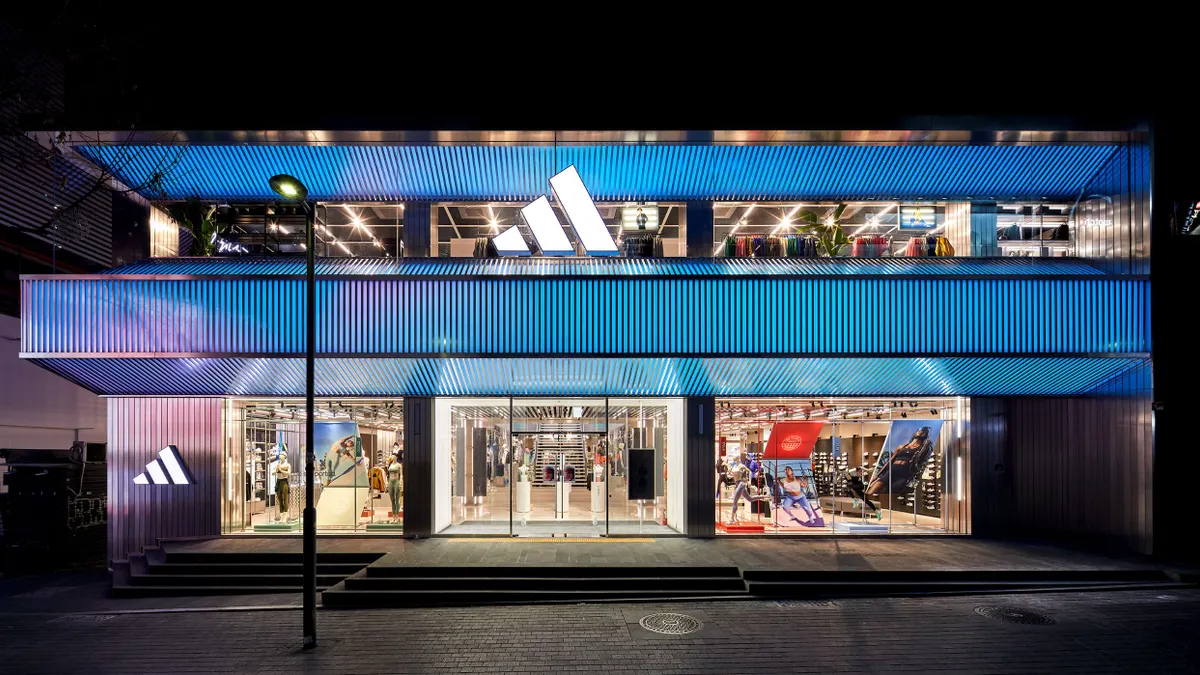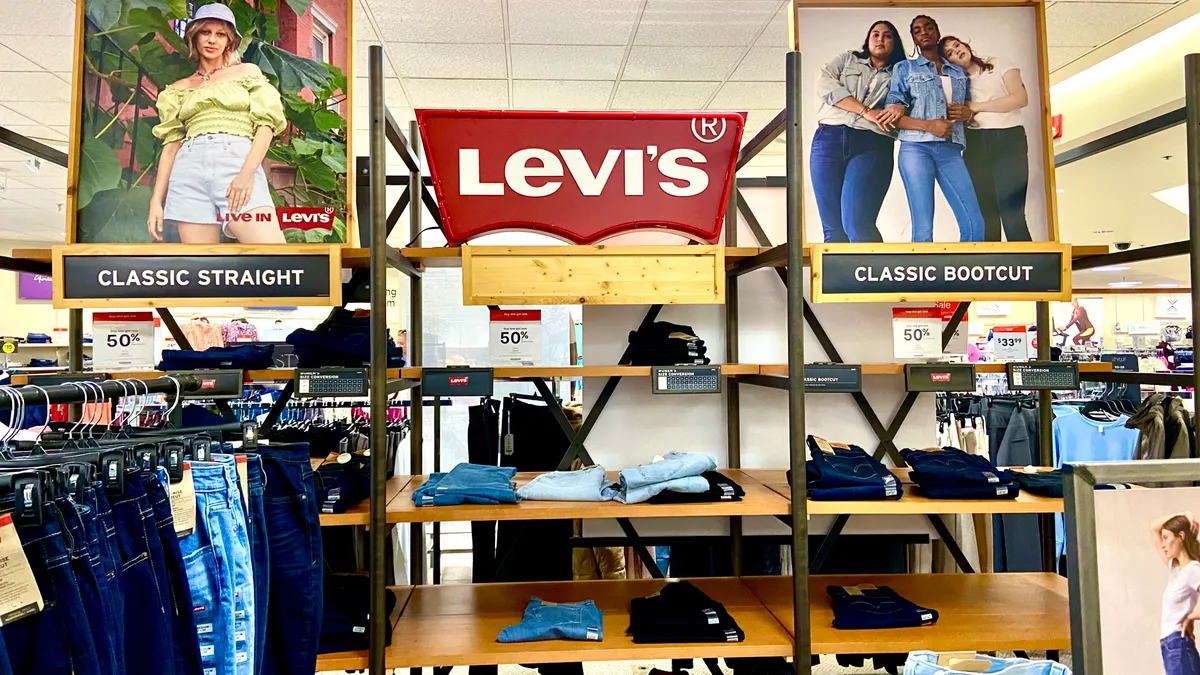To better understand how private equity investment has affected the contemporary retail industry, Retail Dive collected data provided by Debtwire, Pitchbook and other sources, as well as from our own research. Our goal was to build as comprehensive a list as possible of private equity acquisitions, narrowed to those retailers relevant to our audience, going back more than 15 years. We then tried to track outcomes of those mergers by looking at Moody's ratings, Chapter 11 filings and other data. The rest of the series can be found here.
Last year, during the height of the so-called retail apocalypse — when retail bankruptcies outpaced those during the Great Recession — all eyes turned to Amazon, the industry's favorite bogeyman. The e-tailer often became shorthand for the reasons behind retrenchment and consolidation in the industry.
And it wasn't just outsiders. In Chapter 11 filings last year, retail CEOs and chief financial officers at bankrupt companies almost universally pointed to a shift toward e-commerce and declining traffic to physical stores when explaining why they were seeking court protection from creditors.
Fair point. Secular changes hurt. But retailers with clean balance sheets were far better positioned to weather shifts in the industry. Those with burdensome debt loads — not as much. It took time, and perhaps the bankruptcy of Toys R Us, but private equity finally started to get some credit in the popular imagination for the apocalypse.
A significant portion of the retailers that filed for bankruptcy last year carried debt loads leftover from leveraged buyouts by private equity firms. An analysis by Retail Dive — on merger and acquisition data from PitchBook, Debtwire and Retail Dive's own research — found that 19, or 15.7% of major retailers acquired by private equity firms since 2002, have filed for Chapter 11. More than half of those have occurred in the past two years. Seven occurred in 2017, as many as occurred total in the preceding 10 years. Among them were household names, such as Toys R Us, Payless, The Limited, Gymboree, H.H. Gregg and True Religion.
Post-buyout bankruptcies
| Retailer | PE Buyer | Ch 11 Year |
|---|---|---|
| Brookstone | J.W. Childs | 2014 |
| Brookstone | Sailing Power, Sanpower | 2018 |
| Claire's Stores | Apollo | 2018 |
| Deb Shops | Gordon Brothers | 2011 |
| Edwin Watts Golf | Sun Capital | 2013 |
| H.H. Gregg | Freeman Spogli | 2017 |
| Linens n' Things | Apollo | 2009 |
| Matress Firm | Steinhoff | 2018 |
| Musicland | Sun Capital | 2006 |
| Nine West | Sycamore | 2018 |
| Payless | Golden Gate | 2017 |
| rue21 | Apax | 2017 |
| Sports Authority | Leonard Green | 2016 |
| Gymboree | Bain | 2017 |
| The Limited | Sun Capital | 2017 |
| The Rockport Company | Berkshire Partners | 2018 |
| Toys R Us | Bain, KKR, Vornado | 2017 |
| True Religion | TowerBrook | 2017 |
| Wickes Furniture | Sun Capital | 2008 |
Source: Debtwire, Pitchbook, Bankruptcydata.com, Retail Dive
Other studies have found high rates of bankruptcies by private equity-owned retailers. A January analysis by Chuck Carroll and John Yozzo, both with FTI Consulting, found using Deal Pipeline data that more than two-thirds of retail bankruptcies in 2016 and 2017 were private equity-owned or -controlled companies. (Differences in data and how Retail Dive defined its scope for retail acquisitions could account for differences in findings.)
The high levels of bankruptcy point not just to the strain the retail industry as a whole has gone through in the past two years but also when private equity firms were doing the buyouts. Of the data tracked by Retail Dive, nine of all the bankrupt retailers were acquired by private equity firms in 2005, 2006 and 2007.
'A lot of things have to go right'
In looking at why private equity-owned retailers go bust, it becomes difficult to separate the issues of debt and the rise of e-commerce. "In order to be competitive, you have to have a good online business, your stores have to be reasonably fresh," Moody's Lead Retail Analyst Charlie O'Shea told Retail Dive in an interview. "And you have to manage your liquidity. And if you have a boatload of debt, guess what, you have a liquidity [constraint]. … When you bring a sponsor into the equation, there's the leverage."
He added, "A lot of things have to go right for a leveraged buyout to succeed." And these days in retail, there's plenty that can go wrong.
Looking deeper, it's worth considering the purpose of the buyouts and what follows them. Private equity firms, like hedge funds, are searching for investments with high growth potential. That can mean going bargain shopping for companies that are already struggling, and so might come with a higher risk for default. As for the debt, some academics see the leveraged buyout as simply an alternative, and even efficient, form of capitalizing and managing a company. Others see it as a form of asset stripping that is risky at best, rapacious at worst.
"At the core of these things, they're running an investment firm, not a retail business. The retailer becomes the collateral rather than the actual business you're in."

Nick Egelanian
President at SiteWorks
Typically, private equity firms look to exit their investment through a sale or an IPO within about five years, give or take. "Your interests don't always align with the long term," Nick Egelanian, president of retail development consultants SiteWorks, who has worked for retailers owned by private equity firms, told Retail Dive in an interview. "At the core of these things, they're running an investment firm, not a retail business. The retailer becomes the collateral rather than the actual business you're in."
Debt can fuel buyouts as well as retail expansions once private equity takes control, and the interest obligations on that debt typically come on top of dividends, fees and other payments retailers make to their private equity owners. (Those often become a subject of scrutiny, if not litigation, in Chapter 11 cases, with Nine West, Payless and Toys R Us as a few examples.)
Toys R Us has become a poster child for what can go wrong in a leveraged buyout. Acquired by Bain Capital, KKR and Vornado Realty Trust in 2005 for $6.6 billion, the retailer struggled until the end of its life to pay down its debt, refinancing it several times. In the meantime, employees and former employees have told Retail Dive that the company for years cut staff and underinvested in its stores, operations and IT, very likely the cause behind market share losses, and ultimately Chapter 11 and liquidation.
"With Toys R Us, there was a lot of debt put on it, way too much debt," Egelanian said. "At the same time, with their locations adjacent to malls, they had flat sales. They also were very chronically short of investment capital. Their stores were tired … they probably should have been downsized. And the private equity put this noose around their neck with way too much debt."
And a retailer's Chapter 11 doesn't necessarily mean its private equity owner lost money on the deal.
"By and large, bankruptcy does not mean a lost investment," John Potter, PwC deals leader for consumer markets, told Retail Dive. "A lot of times private equity returns have been realized by the time of Chapter 11," he added, pointing to dividends and other transfers. As Bloomberg pointed out in an article last year, sometimes private equity firms even pay themselves dividends funded through debt taken out by the retailer it owns.
(In the case of KKR, the firm has said it lost "many millions of dollars" from the Toys R Us buyout.)
A 'ton of money' taken out
As our own analysis shows, the vast majority of private equity buyouts in the industry haven't ended in Chapter 11. (Although, it's worth noting the pace of acquisitions picked up again in 2011, and both S&P Global and Moody's have noted default risks from buyouts in recent years as the debt attached to those acquisitions matures in the coming years.)
Consider Burlington, which, like Toys R Us, was also a Bain buyout. "Right now probably one of the most successful parts of retail is discount apparel … because they're taking market shares from the department stores," Egelanian said. "From the beginning, Burlington is in a better part of the industry right now and a little better positioned."
"BJ's is fairly well insulated competitively and [Toys R Us] was not."

Charlie O'Shea
Moody's Lead Retail Analyst
"Toys R Us was a fairly mature business… the private equity owners were trying to improve the business by taking it private," Philip Emma, a retail analyst with Debtwire, told Retail Dive in an interview. "But Burlington Coat still had room to grow. Burlington Coat in 2006 it had 367 stores and [was] doing about $3.2 billion in sales … by 2014 it had grown to 520 stores and $4.5 billion in sales. A bit of it was just luck of the timing."
O'Shea points to BJ's as a counterexample to Toys R Us and other retailers in cyclical sectors that have gone under after buyouts. "BJ's: It's food, it's consumables. It's a steady state business if there ever was one," he said. "The sponsors took a ton of money out of this thing, and then the company sets itself up, does the IPO, pays off debt, and the sponsors still own roughly 70% … and it's still ticking. BJ's is fairly well insulated competitively and [Toys R Us] was not."
'I never saw a moment of greed'
Despite the bankruptcies — and the also sizable number of retailers struggling financially but still limping along after leveraged buyouts — there are plenty of defenders inside and outside the industry.
W. Paul Jones, who was CEO of Payless, which went in and out of bankruptcy last year — an orderly affair that arguably made the shoe retailer stronger — told Retail Dive in an interview that he thought media have tended to paint private equity with a "similar brush."
"It's always assuming that there's malicious intent and … greed," Jones said. "The predominance of what I read is very cynical about their intent." Jones added that Payless had underperformed for years as a publicly traded company before its buyout by Golden Gate Capital, which he called a "great partner" with the "highest level of integrity." "I never saw a moment of greed or self-serving," he said.
"We just got caught in some really treacherous circumstances," as e-commerce grew more rapidly than anyone in retail expected, Jones added. "I guarantee you private equity ownership looks very differently at leverage today than before. The predictability of the business was so much greater than this past seven-to-10- year period. … In today's day and age, you can't take the risk, because no one knows what the next curve ball is going to be."
The Series
- Intro
An in-depth look at the risky relationship
- Buyouts
The money 'explosion'
- Acquisitions
The biggest buyouts
- Investments
The hungriest acquirers
- Overloaded
The debt-burdened retailers






















